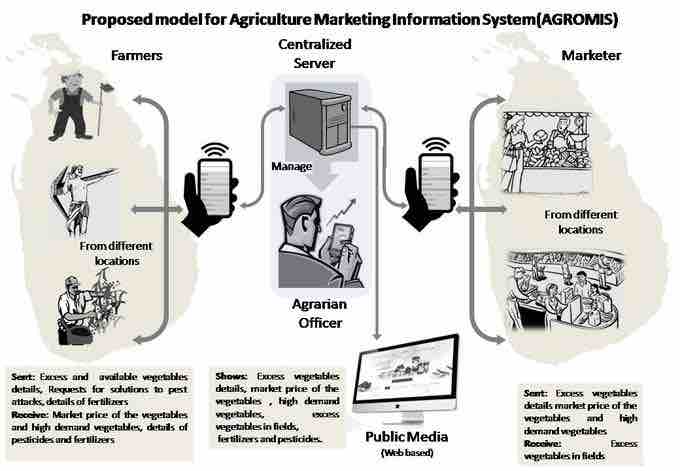Marketing Information Systems
A marketing information system (MIS) is a management information system designed to support marketing decision making. It brings together many different kinds of data, people, equipment and procedures to help an organization make better decisions . American academic Philip Kotler has defined it more broadly as "people, equipment, and procedures to gather, sort, analyze, evaluate, and distribute needed, timely, and accurate information to marketing decision makers. " Not to be confused for a management information system, marketing information systems are designed specifically for managing the marketing aspects of the business.

Example of an MIS
This is an example of a marketing information system for agriculture.
Jobber (2007) defines it as a "system in which marketing data is formally gathered, stored, analysed and distributed to managers in accordance with their informational needs on a regular basis. "
MIS not only indicates how things are going, but also why and where performance is failing to meet the plan. These reports include near real-time performance of cost centers and projects with detail sufficient for individual accountability. MISs produce fixed, regularly scheduled reports to middle and operational level managers to identify and inform structured and semi-structured decision problems.
A traditional marketing information system can provide endless benefits to any organization in the private or public sector, despite its size or level of managerial sophistication. Some of these benefits include:
- It enables managers to share information and work together virtually.
- It helps marketers collaborate with customers on product designs and customer requirements.
- It addresses operational needs through customer management systems that focus on the day-to-day processing of customer transactions from the initial sale through customer service.
- The availability of the customer data and feedback can help the company align their business processes according to the needs of the customers. The effective management of customer data can help the company perform direct marketing and promotional activities.
- Information is considered to be an important asset for any company in the modern competitive world. The consumer buying trends and behaviors can be predicted by the analysis of sales and revenue reports from each operating region of the company.